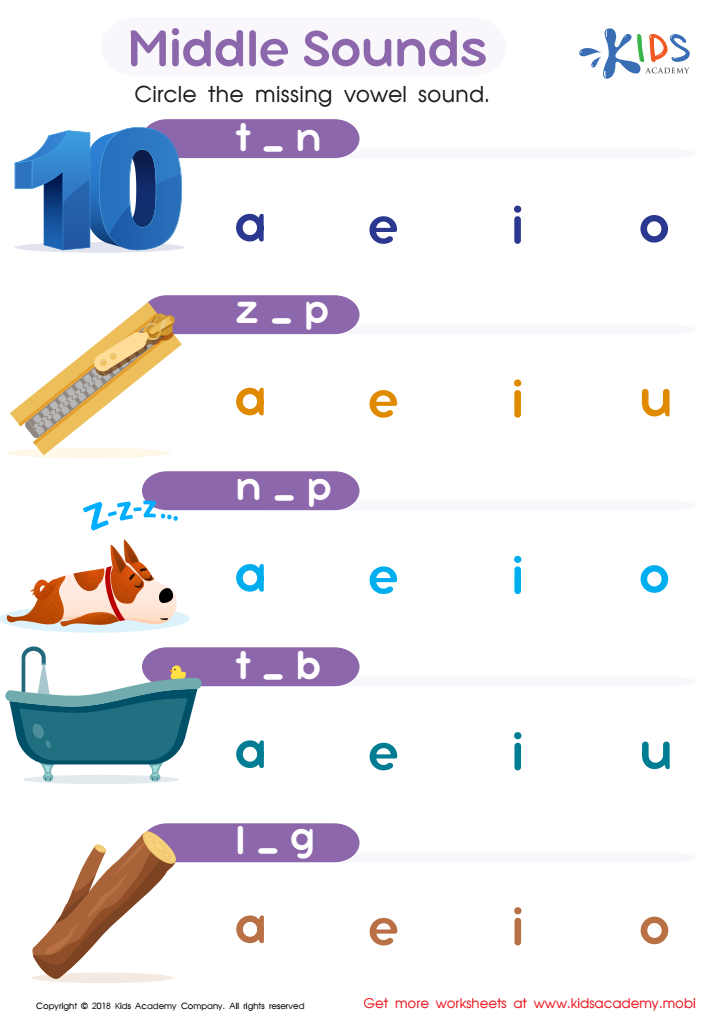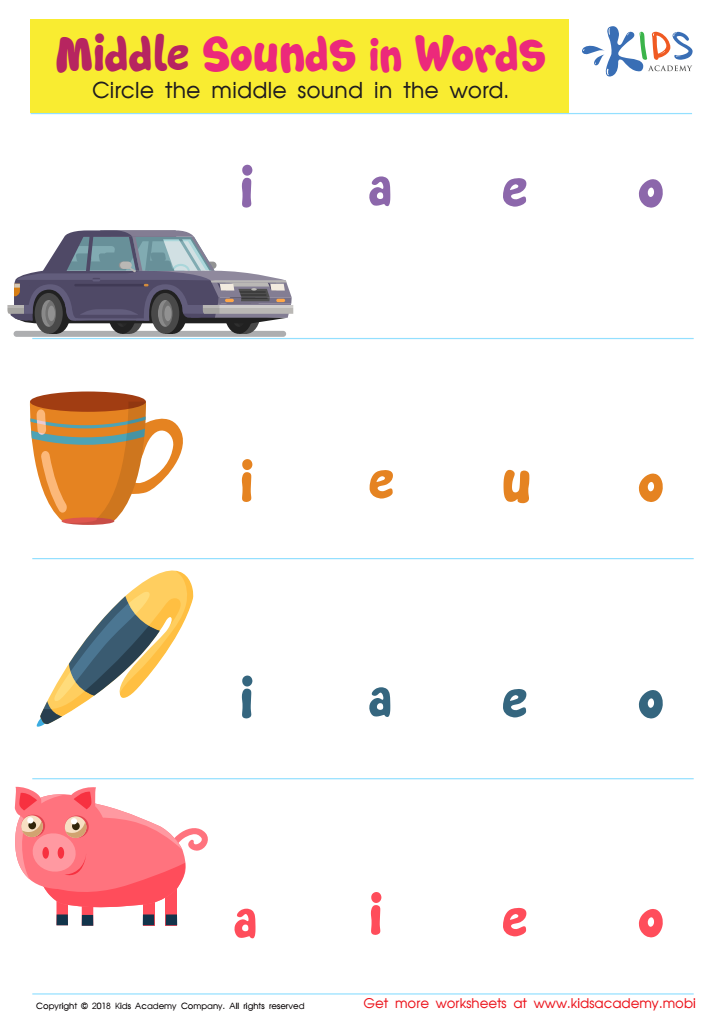Middle Sounds Worksheets for Ages 3-7
4 filtered results
-
From - To
Unlock your child's phonics potential with our engaging Middle Sounds Worksheets designed for ages 3-7! These fun and interactive resources help young learners identify and understand middle sounds in words, which is crucial for building their reading and spelling skills. Our worksheets feature colorful illustrations and age-appropriate activities that make learning enjoyable. Whether your child is practicing vowel sounds or developing phonemic awareness, our worksheets provide the perfect balance of challenge and creativity. Foster a love for reading and set the foundation for literacy with our Middle Sounds Worksheets—your go-to resource for early childhood education!


Phonics and Word Recognition: Assessment 1 ELA Worksheet


Phonics and Word Recognition: Assessment 1 Worksheet


Middle Sounds Worksheet


Middle Sounds in Words Worksheet
Middle sounds play a crucial role in early literacy development for children aged 3-7. Understanding middle sounds helps young learners recognize that words consist of smaller sound units. This phonemic awareness is fundamental for reading and writing skills. When children can identify middle sounds, they improve their ability to decode and spell words, which boosts their overall literacy capabilities.
Additionally, focusing on middle sounds fosters critical listening skills. Young children learn to hear, differentiate, and manipulate sounds through games and activities that emphasize these middle phonemes. It enhances their vocabulary and comprehension, making reading more enjoyable and less intimidating.
For parents and teachers, emphasizing middle sounds is an effective strategy to bridge the gap between spoken language and written text. Engaging in playful activities, like rhyming games or sound matching, encourages active participation and strengthens the child’s confidence in using language.
Ultimately, paying attention to middle sounds fosters a strong foundation for literacy, contributing to greater academic success in the later years. By investing time in this important aspect of language development, parents and teachers help shape skilled, confident readers and writers who are prepared for future educational challenges.

 Assign to My Students
Assign to My Students














